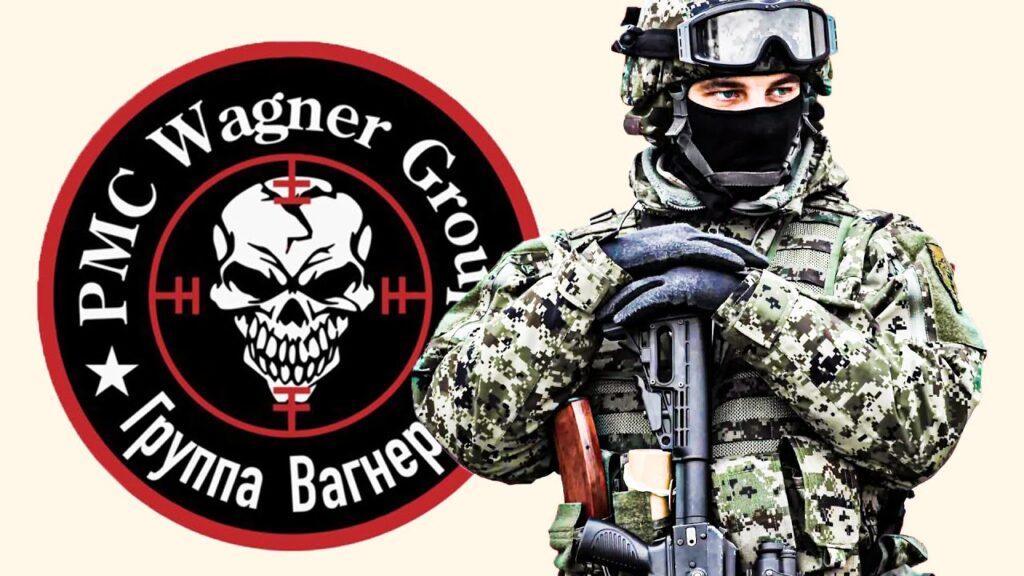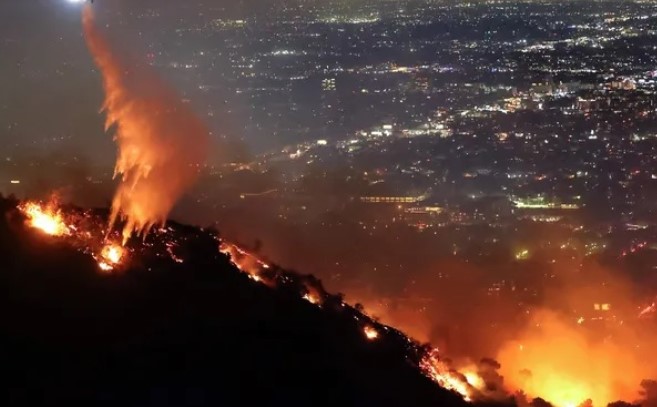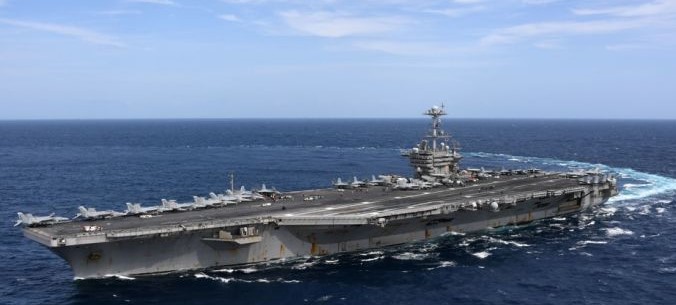
STRATEGIC ASSESSMENT. Russian President Vladimir Putin ordered a full-scale invasion of Ukraine, with Russian military forces attacking multiple targets overnight. Putin declared the beginning of a “special military operation” which is the culmination of the past several weeks of Russia mounting nearly 190,000 forces on Ukraine’s borders. U.S. intelligence has been warning of this impending invasion, detailing the Kremlin’s intentions step-by-step, as the world has watched events unfold in near slow-motion. In a clear warning to the United States and NATO countries, Putin threatened “consequences they have never seen” for any country that seeks to intervene in the ongoing conflict. But this premeditated war of choice will inevitably be met with pushback from Western countries, as calls grow to arm Ukraine with more sophisticated weaponry, beyond javelins and other surface-to-air missiles. U.S. President Joseph Biden called the attack “unprovoked and unjustified” and promised that Moscow would be held accountable, not just by the United States, but by the rest of the world. And while that remains to be seen, Russian military forces pressed ahead with an aggressive offensive that included artillery strikes and rocket attacks launched against Ukrainian military installations. Some reporting suggested that Russian troops had landed in Odessa and Mariupol. Other Ukrainian cities, including Kharkiv, Kramatorsk, and the capital city of Kyiv also reported explosions and artillery bombardments.
The conflict between Russia and Ukraine exploded overnight, with Moscow’s attack on Ukraine a blatant violation of international law. The attack in effect scrapped the Minsk peace deal, with the Kremlin inserting troops into Ukraine’s Donetsk and Luhansk regions. The fog of war remains thick, and the prospect of increased violence is now a veritable certainty. As with Russia’s 2014 invasion of Crimea, irregular forces are already playing a role, as reported by the New York Times, which noted that European security officials have already confirmed that Russian mercenaries are operating on the ground in eastern Ukraine.
In 2014 the so-called “Wagner Group” worked side-by-side with Russian military forces, terrorists like the Russian Imperial Movement, and a hodge-podge of separatists as part of the Russian effort to annex Crimea. In the ensuing years, Wagner-linked mercenaries would engage in conflicts beyond Europe, to include Africa, the Levant, South America, and North Africa. It is because of these destabilizing activities, especially in Ukraine, as a Russian proxy force that the U.S. Department of the Treasury designated “PMC Wagner” pursuant to E.O. 13660 for, “sending soldiers to fight alongside separatists in Eastern Ukraine…and for being responsible for or complicit in, or having engaged in, directly or indirectly, actions or policies threaten the peace, security, stability, sovereignty, or territorial integrity of Ukraine.” Eight years later, PMC Wagner may play a very similar role in Donetsk and Luhansk in the coming weeks.
Putin has bet big that the international community will allow for a Russian repeat of what happened in Crimea. Given the stakes, it is likely that the Russian leader will again lean on close friend, colleague, and oligarch Yevgeny Prigozhin to use his considerable influence to help with Russia’s invasion of eastern Ukraine. Prigozhin, the founder of PMC Wagner, has been sanctioned multiple times by the U.S. Department of the Treasury for a wide range of activities to include efforts to upend U.S. elections, conducting disinformation operations, creating chaos in Ukraine, and for expanding PMC Wagner-linked enterprises and their destabilizing activities in Africa. Prigozhin has little to lose, and U.S. sanctions have had no success in modifying his behavior, nor have they deterred his ambitions to expand Russia’s sphere of influence. As such, PMC Wagner will deploy its networks in full force during the ongoing siege of Ukraine.
In the lead up to Putin’s speech that established the pretext for Russia’s invasion there were reports that Russian military family members were wary of Russian intervention in Ukraine. Members of PMC Wagner could, for instance, take on more dangerous roles, some of which may take them deeper into Ukrainian territory, as part of an effort to minimize the regular Russian military death toll. PMC Wagner personnel may also serve as a convenient tool for the much-discussed Russian false flag operations that further fuel Russian efforts to rally Russia’s citizens around the flag. In this regard, the combination of Prigozhin’s acumen in launching disinformation operations and his control over PMC Wagner creates a unique asymmetric Molotov cocktail that can be lobbed into Donbas.
Alternatively, given the number of regular Russian military forces involved in the current invasion Ukraine’s border, the need for PMC Wagner to play a direct role in the current conflict may be unnecessary. Redeploying some PMC Wagner assets from Africa to Ukraine (for instance) would require logistical and financial costs that may be too high to absorb given the economic pain the international community is trying to inflict against the Russian Federation due to its recent incursion. Moreover, keeping a robust beachhead in Africa, where PMC Wagner can assist Russia in exploiting Africa’s natural resources will likely remain a high priority. As Russia suffers a financial pinch, PMC Wagner’s access to natural resources and commercial assets in Africa will become increasingly important sources of revenue for the Kremlin as its access to the international formal financial system closes due to its aggression in Ukraine.
It was during an extraordinary emergency session of the UN Security Council meeting requested by Ukraine, and on the heels of a direct appeal from the Secretary-General to President Putin to stop his troops from attacking Ukraine, that the announcement of the Russian invasion came through and made moot many of the statements that had urged continued dialogue and diplomacy. Ukraine’s ambassador, Sergiy Kyslytsya, declared most of his statement “mostly useless” following the announcement of military operations at 10pm and called for Russia’s expulsion from the United Nations, declaring that Russia could no longer meet its obligations under Article 4 of the Charter. The delegation circulated a legal memo regarding the membership of the Russian Federation in the UN, challenging their admission in 1991 following the dissolution of the Soviet Union.
Earlier in the day, a debate in the General Assembly highlighted the chasm between states condemning Russia’s actions in Ukraine as a colonialist enterprise and a violation of the norms of sovereignty and non-interference, and others whose traditionally vocal defense of those values was deafeningly muted. Several Council members, including the United Kingdom, stressed this is an unprovoked attack, and US Ambassador Linda Thomas-Greenfield stressed that “President Putin had delivered a message of war in total disdain for the responsibility of this [Security] Council,” and declared the intention to take further action on Thursday, when a resolution is likely. However, with many states recalling the inability of the Council to stop major wars over the past two decades, there will be a lot of critical questions regarding what role the United Nations can play if its permanent members are implicated in unprovoked aggression. Several fiery and impassioned appeals were heard this week – notably Kenya’s statement in the Council earlier this week calling on Russia to learn to live with postcolonial borders and move forward, as African states have done, and Secretary-General Guterres’ earlier offer of his good offices to help mitigate the conflict – the Ukrainian ambassador’s statement is likely to reverberate loudly over the coming days: “There is no purgatory for war criminals; you go straight to hell.” (TSC)





